Carrie Frances Fisher, born on October 21, 1956, in Beverly Hills, California, was destined to grow up under the shadow of Hollywood’s bright lights. Her father, Eddie Fisher, was one of the most popular singers of the 1950s, while her mother, Debbie Reynolds, was America’s sweetheart thanks to classics like
Singin’ in the Rain (1952). From the very beginning, Carrie’s life was tied to show business, but she would ultimately carve her own identity as an actress, writer, and outspoken advocate whose candor changed the way people spoke about fame, addiction, and mental health.
Carrie’s childhood was anything but ordinary. The glamorous world of Beverly Hills gave her access to privilege, but it also exposed her to the darker realities of fame. Her parents’ marriage ended in scandal when Eddie Fisher left Debbie Reynolds for Elizabeth Taylor, one of Hollywood’s biggest stars. This highly publicized divorce made headlines across America and left a lasting impression on Carrie, who would later mine her complicated family history for her writing and humor. Despite the turbulence, Carrie was a voracious reader and showed early talent in both performance and writing. She attended Beverly Hills High School but left before graduation to join her mother on stage in the musical
Irene. Later, she studied at London’s Central School of Speech and Drama, refining her craft and gaining the experience that would prepare her for her breakout role.
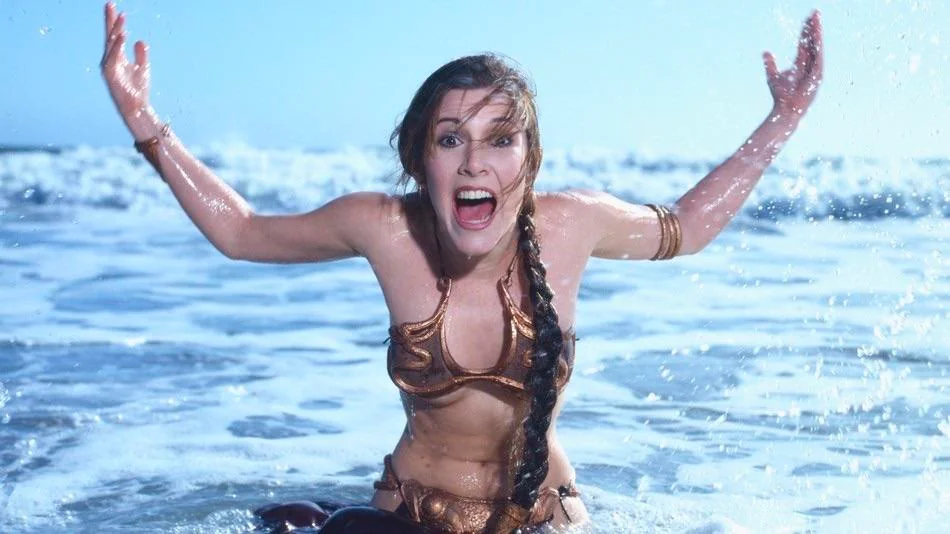
In 1977, Carrie Fisher’s life changed forever when she was cast as Princess Leia Organa in George Lucas’s
Star Wars. With her distinctive cinnamon-bun hairstyle, sharp wit, and regal presence, Leia became an instant icon of strength and resilience in a genre dominated by male heroes. Fisher was only 19 when the first film premiered, but her performance helped redefine the female role in science fiction cinema. Leia was not a damsel in distress—she was a leader, a fighter, and a symbol of defiance. For young women in the late 1970s, Fisher’s portrayal was revolutionary. As the
Star Wars franchise grew into a global phenomenon, Leia became one of the most recognizable and beloved characters in movie history. Fisher would reprise the role in The Empire Strikes Back
(1980), Return of the Jedi (1983), and decades later in The Force Awakens (2015) and The Last Jedi (2017), giving the character new depth as both warrior and stateswoman.
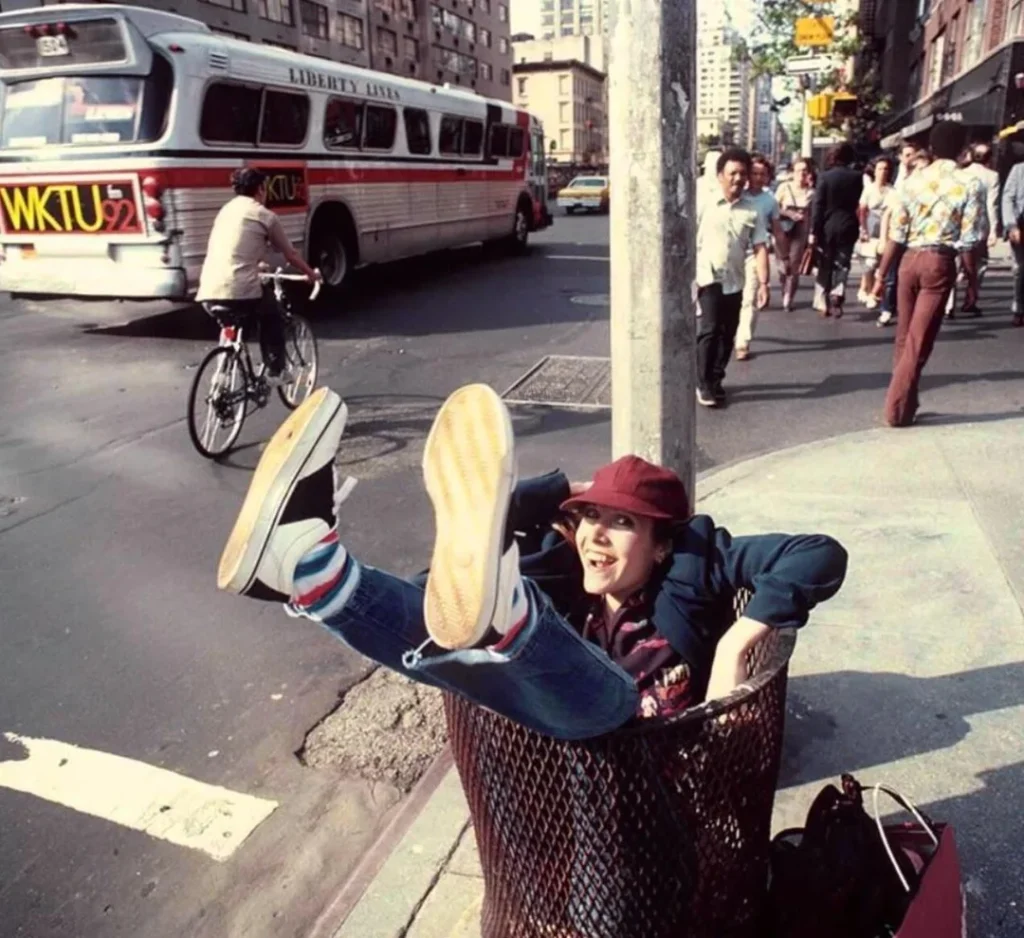
Though she will forever be associated with Leia, Carrie Fisher’s career extended far beyond the galaxy far, far away. She appeared in films like
The Blues Brothers (1980), Hannah and Her Sisters (1986), and When Harry Met Sally (1989), where her supporting roles showcased her sharp comedic timing and on-screen presence. However, acting was only part of her story. Fisher became one of Hollywood’s most respected script doctors in the 1990s, revising dialogue for films such as
Hook, Sister Act, and The Wedding Singer. Her gift for wit, insight, and emotional honesty made her invaluable behind the scenes, even if her contributions often went uncredited.
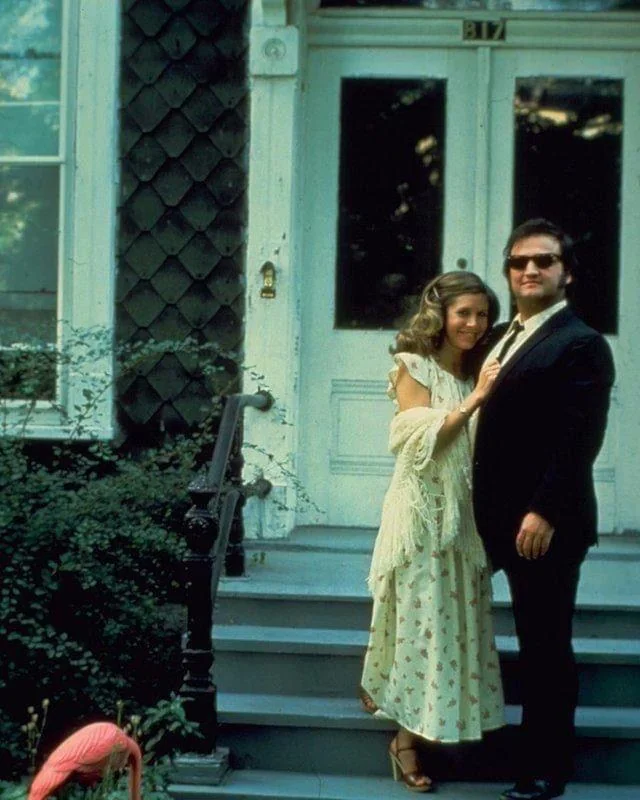
Carrie’s true passion lay in writing. In 1987, she published her first novel, Postcards from the Edge, a semi-autobiographical story about an actress struggling with addiction and her complicated relationship with her famous mother. The book was a bestseller and later adapted into a film starring Meryl Streep and Shirley MacLaine. Her other works, including
Surrender the Pink, Delusions of Grandma, and memoirs like Wishful Drinking (2008) and The Princess Diarist (2016), cemented her reputation as a brutally honest and hilarious chronicler of Hollywood life. In her writing, Fisher revealed the truth behind the glamour—addiction, heartbreak, mental illness, and the pressure of living in the public eye. Her candor and humor turned her struggles into a source of connection for millions of readers.

Perhaps Carrie Fisher’s greatest legacy lies in her openness about mental health. Diagnosed with bipolar disorder, she spoke publicly about her experiences at a time when such issues were often stigmatized or ignored. She combined honesty with humor, transforming what could have been taboo into something relatable and even liberating. Her advocacy made her a role model for countless people facing similar challenges. By openly discussing her battles with substance abuse, electric shock therapy, and the daily reality of living with bipolar disorder, Fisher helped break down barriers and encourage greater acceptance and understanding.

Carrie’s personal life was as complex as her professional one. She was briefly married to musician Paul Simon, and though the relationship ended, they remained close throughout her life. She had one daughter, Billie Lourd, with talent agent Bryan Lourd. Billie would go on to become an actress herself, appearing in shows like
American Horror Story and even in the Star Wars sequels, carrying on her mother’s legacy in film.
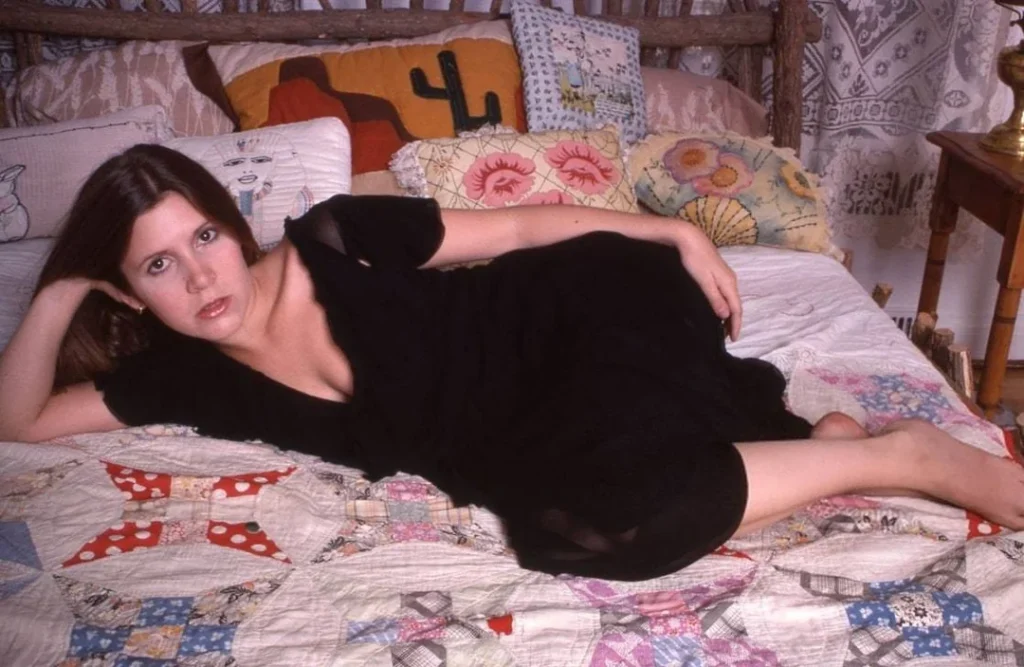
In December 2016, Fisher suffered a heart attack while flying from London to Los Angeles. She passed away on December 27, at the age of 60. The following day, her mother, Debbie Reynolds, died of a stroke—an event that underscored the profound bond between them and added a final, poignant chapter to their family’s story. The loss of Carrie Fisher was felt worldwide. Fans mourned not only the passing of Princess Leia but of a woman whose honesty, humor, and courage had touched millions. Tributes poured in from fellow actors, writers, and fans, celebrating her contributions to both art and advocacy.
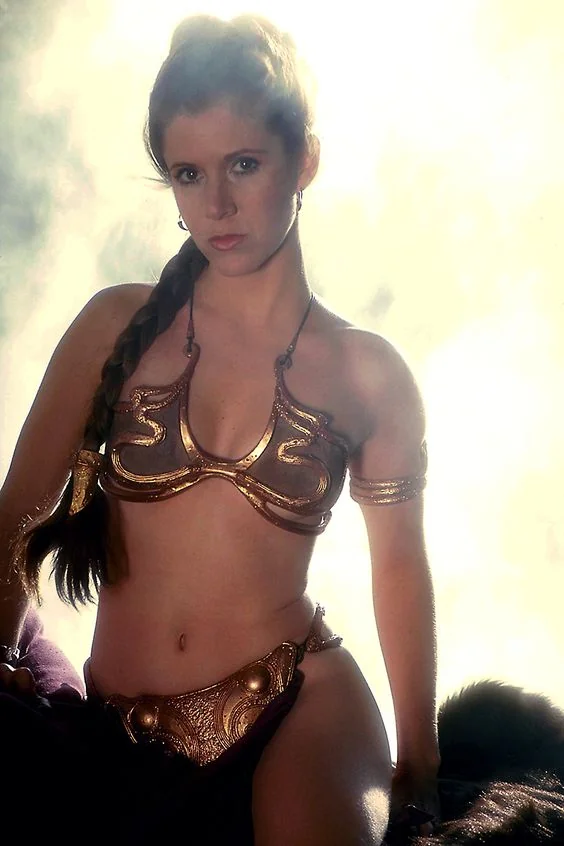
Carrie Fisher remains more than just a Hollywood star—she is remembered as a cultural icon, a fearless writer, and a trailblazing advocate. She embodied resilience, wit, and vulnerability in equal measure. Princess Leia may have made her famous, but Carrie Fisher’s true power lay in her authenticity and her refusal to be anything but herself. Her legacy continues through her films, her books, and the impact of her voice in conversations about mental health and the realities of fame. For those who grew up watching
Star Wars, she was royalty. For those who read her memoirs, she was a kindred spirit. For the world at large, she was proof that even in Hollywood, authenticity and honesty can outshine the brightest spotlight.


